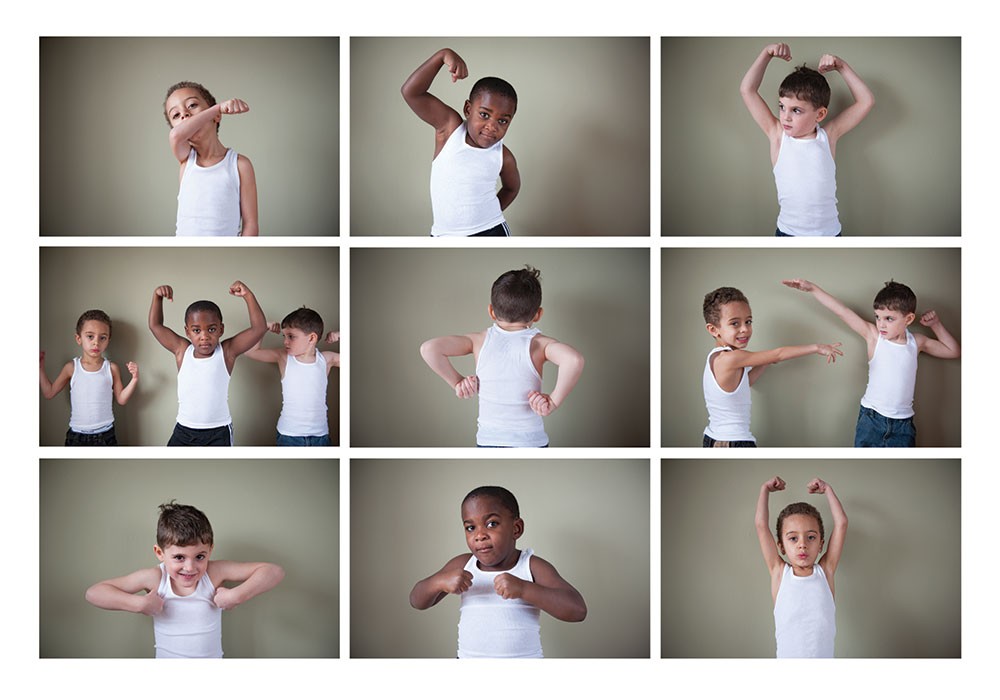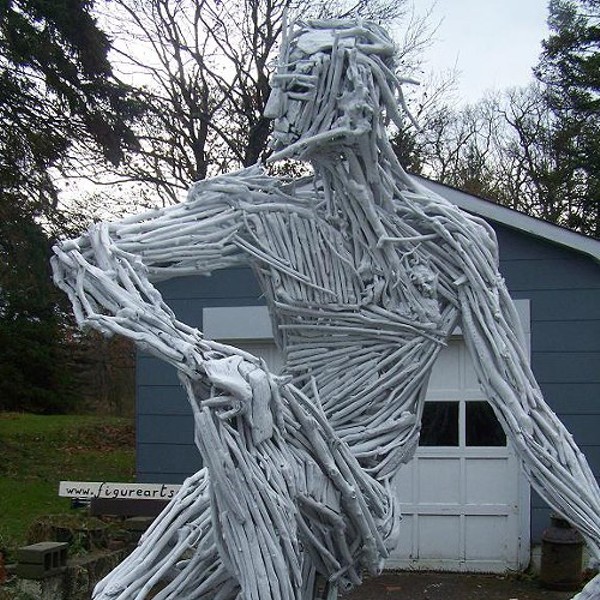While Parmatma Khalsa was driving back from a funeral in Harford County, Maryland, a man in a neighboring car rolled down his window and started shouting. Khalsa didn't know what he was saying, but could see the misdirected anger and frustration in his face. Khalsa's parents became American Sikhs, and Khalsa was raised with kundalini yoga, meditation, and an emphasis on directing his attention inward. He wears a beard and turban, articles of his faith, which is presumably why the man was yelling, likely mistaking Khalsa for Muslim. "A big problem in our culture with males and their image of themselves," explains Khalsa, "is that they often don't have the tools to be self-reflective. They'll point their anger outside and see others as being the problem."
If manhood has a narrative, then power is its thread. Khalsa's grandfather was a fighter pilot in WWII. Dubbed the Greatest Generation by journalist Tom Brokaw, the men were well regarded because they didn't complain, and were principled and ready to sacrifice for God and country. Their sons were taught to confront problems head-on, that being a man was about responsibility, independence, and protection. When boys are told to man up, that is what's meant: Even young boys are expected to be in control.
The collective socialization of men is something that educator and social justice activist Tony Porter has thought about quite a bit. Through speaking engagements and writing, Porter defines the qualities that make the man: Vulnerability is unacceptable; pain, especially emotional, should go unacknowledged; men shouldn't seek help; anger is the only permissible emotion. He calls it the Man Box, and says that homophobia and heterosexism are the glue that holds it together. In his 2016 book, Breaking Out of the Man Box, Porter writes, "I quickly learned and understood that, as men, we have been collectively taught to define what it means to be a man by distancing ourselves from the experiences of women." That distance, and the corresponding sexual objectification of women and girls, Porter says, creates a society of oppression and domination, leading to sexism and violence.

Porter is co-founder of A Call to Men, the violence prevention organization that promotes ideas of healthy, respectful manhood through education and training in high testosterone circles like professional sports, politics, and the US military—locally at the United States Military Academy at West Point. The work appeals to "well-meaning men," those who aim for positive manhood but still struggle with the ideals of the Man Box. As Porter describes in his book, they might tell their boys to stop crying, stand up straight, and be the man of the house. Meanwhile, they might tell their daughters that boys will be boys, and don't worry—daddy will take care of everything.
When it comes to raising boys, Porter writes, teaching boys to always be in control means teaching them how to renounce feeling. "The expectation is that by the time a boy is 10, they will have perfected it," Porter writes. "The fear of publicly displaying emotions, other than anger, this fear has us paralyzed and is holding us hostage." The antidote, Porter writes throughout his book, is to recognize the experiences of women. In cultivating empathy for others, men can access the better aspects of manhood.
Nature the Equalizer
A positive example of uniting genders is in the 91st Sojourners, a local chapter of the Baden-Powell Service Association (BPSA) scouts. It's traditional scouting and community service where boys and girls explore the same activities together. Group leaders, with representatives from each gender, are the badge-earning members of the oldest section of scouts. Scouts work together on all tasks and camping preparations, self-selecting their roles and missions during free time. During camping trips, the genders are segregated for sleeping and bathroom arrangements.
Lord Robert Baden-Powell was a lieutenant-general in the British Army, and wrote the book Scouting for Boys in 1908, based on skills learned during his service in South Africa. It fostered a Scout Movement that resulted in the Boy and Girl Scouts, with the latter forming a different curriculum based on societal norms for girls and women. Ten years ago, BPSA was begun as a return to the roots, and its youth scouting program was born five years ago. "Co-ed scouting is an experiment in our country," says Andy Bicking, Group Scoutmaster of 91st Sojourners. "We have a thesis: Let's not make any assumptions." The goal is to give everyone the same platform.

















